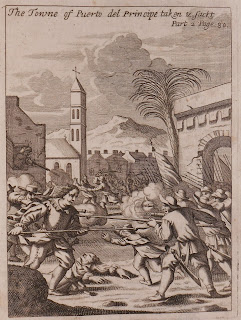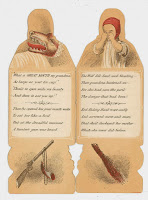 Thinking of dressing up like a pirate this Halloween? If you want the classic look popularized in the 19th century, Howard Pyle is the place to go. But, if you want a more authentic take on the style, try The Bucaniers of America: Or, a True Account of the Most Remarkable Assault Committed of Late Years upon the Coasts of the West-Indies by the Bucaniers of Jamaica and Tortuga, Both English and French (London: William Crooke, 1684). Not only will you find some good costume ideas, but you can read about the exploits of the campus favorite Captain (Henry) Morgan.
Thinking of dressing up like a pirate this Halloween? If you want the classic look popularized in the 19th century, Howard Pyle is the place to go. But, if you want a more authentic take on the style, try The Bucaniers of America: Or, a True Account of the Most Remarkable Assault Committed of Late Years upon the Coasts of the West-Indies by the Bucaniers of Jamaica and Tortuga, Both English and French (London: William Crooke, 1684). Not only will you find some good costume ideas, but you can read about the exploits of the campus favorite Captain (Henry) Morgan. Originally published in Dutch in 1678, this 1684 English translation added to Alexander Exquemelin's first hand accounts of his encounters with pirates in the Caribbean. It helped to popularize the romantic and sensational tales of privateers and pirates and built the modern mythology surrounding their exploits.
Originally published in Dutch in 1678, this 1684 English translation added to Alexander Exquemelin's first hand accounts of his encounters with pirates in the Caribbean. It helped to popularize the romantic and sensational tales of privateers and pirates and built the modern mythology surrounding their exploits.Just ask for Rare F2161 .E75 1684.


